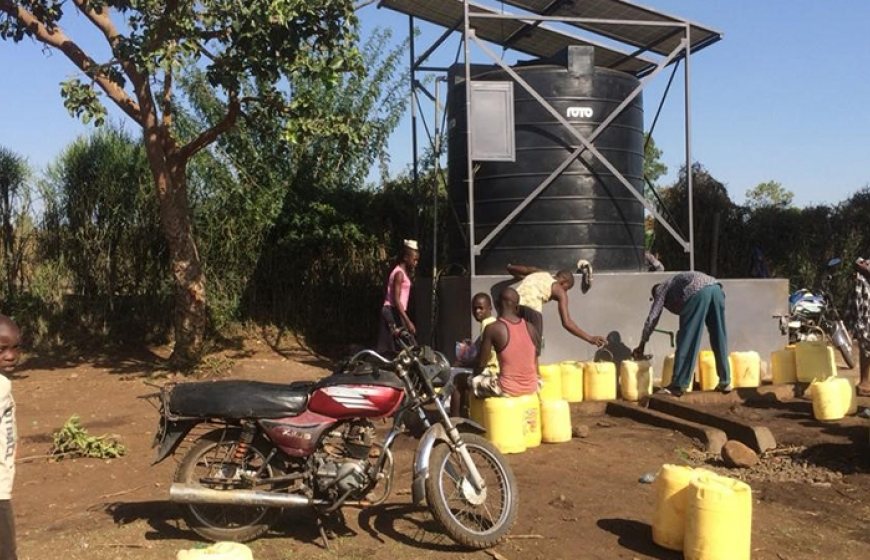
In Homa Bay county, Kenya, Amref Flying Doctors, the Dutch water supply company Dunea and the Kenyan water company Homawasco have extended the supply of safe drinking water to an additional 15,000 Kenyans through a new treatment plant, a capacity building programme and multiple awareness raising activities. The work will continue in the years to come. And it all started because of the network of the Netherlands Water Partnership (NWP). Danny Dubbeldeman, Business Development Manager at Amref Flying Doctors, discusses the advantages and opportunities with Wytze Boonsma, Programme Manager Abroad, and Marco Kortleve, Project Manager, at Dunea.
Partnerships: more than the sum of the parts
Partners achieve more together than alone. Danny Dubbeldeman underlines the added value of collaboration. "We have always been keen on entering into partnerships. We have used the NWP network several times to get in touch with partners who can contribute the expertise and experience that we do not have ourselves, but that are needed to make a particular project successful. For example, we also work with Aqua for All and Acacia Water." Wytze Boonsma, Programme Manager Abroad at Dunea, concurs. "We came into contact with Amref through the NWP network. For us they are a very interesting partner in Africa because they have a long history of working in the continent and are very familiar with this county, so we were able to move the project forward precisely and energetically."
Football for Water
Previous to the development of the capacity building programme, Dunea and Aqua for All strengthened the collaboration in Homabay County, Kenya. They started scoping activities which led to a series of interconnected projects with the objective to fast-track sustainable access to safely managed water and sanitation facilities in both rural and urban settings in Homabay County. They connected with the Football for Water Programme, a partnership between the Ministry of Foreign Affairs of the Netherlands, UNICEF, VEI, Akvo, KNVB and Aqua for All. In Homabay, Dunea and Football for Water have funded sustainable football and WASH facilities and hygiene behaviour change in 5 public primary schools. Football for Water combines WASH interventions in schools with sports-based behaviour change activities and funding was combined to implement Wash and behaviour change interventions.
The programme in Homa Bay brought together schools, community members, and (local) project implementing partners including the Homa Bay County Government, HOMAWASCO, Amref Kenya, Kisumu Youth Football Association, the Ministry of Foreign Affairs of the Netherlands, Dunea, VOx Impuls, Aqua for All, The Royal Netherlands Football Association (KNVB), and many others partners and stakeholders. Football for Water and Dunea work closely together with Amref in Kenya. This programme set the stage for the other collaborations continued by Amref and Dunea.
WASH: safe water, sanitation and hygiene
In the Kenyan county of Homa Bay, more and more people are moving to cities like Kendu Bay, Homa Bay, Mbita and Oyugis. The areas around the cities are getting very crowded, putting growing pressure on facilities. Currently, 15% of the people live in slums and there is a great shortage of toilets and clean water. Amref Flying Doctors, Dunea and Homawasco (the local water operator) are jointly working on improving the situation, starting with extending the water supply. Amref Flying Doctors provides the residents with information about water use, hygiene and safe water storage in the home. Dunea and Homawasco are creating the infrastructure, water supply and drainage system. Dunea is also contributing its business knowledge.
Part of WaterWorX
The project in Kenya is a combination of facilities, awareness raising, good governance and business operations. It is part of the WaterWorX programme, initiated by the 10 Dutch drinking water companies and the Dutch Ministry of Foreign Affairs. Worldwide, almost one billion people still lack access to potable water while 2.4 billion people do not have access to sanitation facilities. WaterWorX’s goal is to give 10 million people access to sustainable water services by 2030 through working with local water operators.
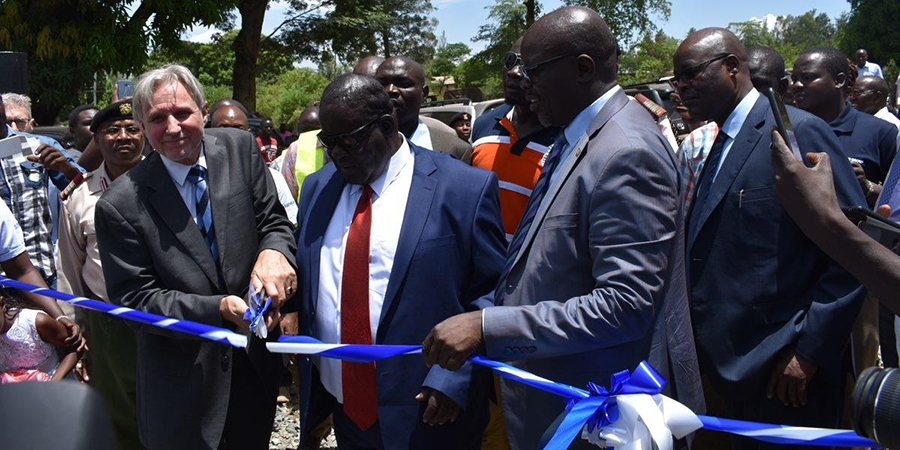
Knowledge transfer and capacity building
The ultimate goal is for Homawasco to become a well-functioning water company that can financially support itself. Marco Kortleve, Project Manager at Dunea explains. "Service and reliability are key. You have to do it right and offer a solution that is better than what people are used to. So capacity building is essential. Dunea invested in the hard water infrastructure, and transferred knowledge and experience to the people of the local water company. These capacity building activities concern all aspects: ensuring that the treatment plant and the pipe system work properly, that the dosage of chemicals is correct, that the water is adequately billed, and that the paperwork is in order. The knowledge transfer also included several business processes such as finance, human resources and communications.” There are still a lot of challenges. Supply is not 100% guaranteed and in the rainy season people still use alternative water sources. The drinking water company also needs to sell water in the rainy season to make its business case viable. Danny Dubbeldeman adds that "A good business model ensures continuity and sustainability. Water has a value and people are willing to pay for clean water, sanitation and hygiene. If they see that water has value, they will also be more careful and economical with it."
If everything runs smoothly and is properly secured, it will form a sound base from which to tackle drinking water production and purification at a larger scale. However, the Covid-19 crisis is now throwing a spanner in the works. The Kenyan Government is allowing people to not pay their water bills, which means that the local water company cannot pay its employees.
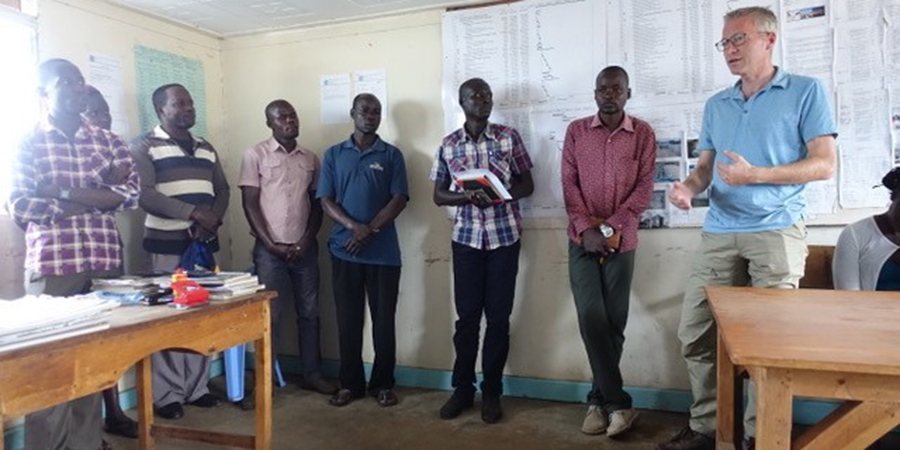
Gender equality: the empowerment of women and girls
Danny Dubbeldeman points out the need to involve women and girls in raising awareness on the importance of a proper water supply system – and for their empowerment. "Our programmes mainly target girls and young women. Through them we reach the family, the relatives and the rest of society. In much of Africa, girls and women collect water from wells. If water is available nearby, they don't have to spend hours collecting it. Then they can work more or go to school. Our project provides a lot of information to create awareness and we are able to do this thanks to our good access to local communities."
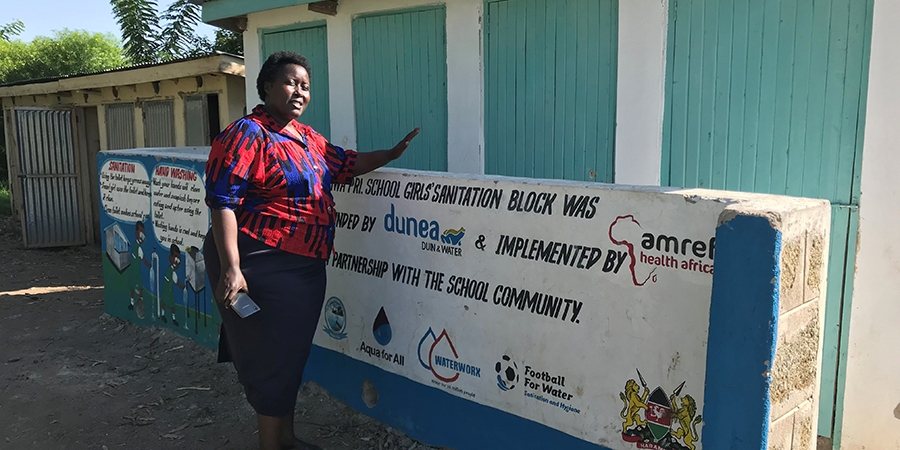
Network for future partnerships
The Kenyan project is a successful example of how joint efforts can deliver water impact and contribute to attaining SDG 6. Wytze Boonstra concludes. "This way of collaboration, in which the knowledge and experience of various water organisations are combined, is the future. We understand how to run a water utility and about customer care and compliance. But we can only share this knowledge in Kenya if we have a partner who knows their way around on the ground. Amref is that partner in this project. It has ensured that we get the trust of the local population. Amref is strongly rooted in Kenya and that makes it a lot easier for us to do our work. It is not common practice to set up partnerships with NGOs, and we are experiencing relatively good results."
Danny Dubbeldeman agrees with this position and looks ahead. "Amref is extremely interested in alliances of this kind, and certainly also with other types of partners such as investors and financial institutions, and we want to further develop this type of collaboration in the future. To do that, we will, of course, make excellent use of the NWP network."
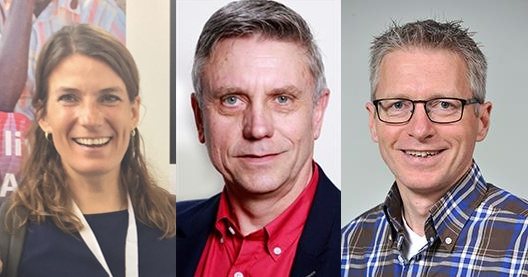
Featured NWP members: AMREF Health Africa, Dunea